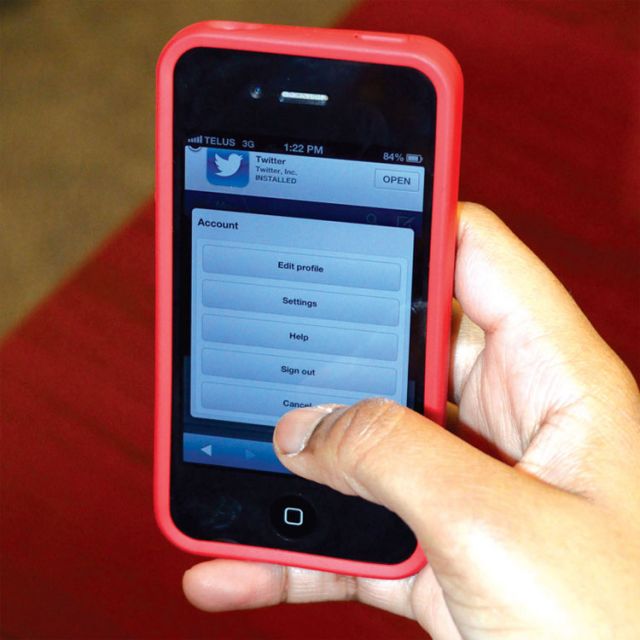"The media is so pervasive and influential it's good just to get away from that — to discover its influence on us," Matthews told The Catholic Register from his home in Hollywood, Calif.
Fr. Steve Bossi's reaction is the polar opposite.
"Bad idea," said the Paulist priest.
The Paulist tradition has been to use media for evangelization. The small, American order has produced movies about Catholic heroes such as Archbishop Oscar Romero and Dorothy Day.
"Using media, especially TV that we get in our homes, can connect us to the world around us. That is where we live our faith," Bossi said.
Jesuit Communications Project director Fr. John Pungente is turned off by the idea of a media fast.
"They should have media literacy information so that people know how to deal with the media," he said.
The Jesuit Communications Project produces media literacy materials for use in schools throughout North America and Europe.
The idea of disconnecting from the Internet, television, film, radio, newspapers, etc. simply isn't practical for anyone living a modern, urban life, said Pungente, who was host of Bravo's award-winning series Scanning the Movies. People use all these media in their daily lives — in their jobs, to keep in touch with family and friends, to know what's happening around them.
"To top it all off, the Pope's World Communications Day message is all about using social media," he said. "It would not be very wise to urge people to give up that media when the Pope has just urged us to make use of that media."
Simply giving up all media, or a particular form of media, for Lent would be the most direct form of a media fast, but Matthews advocates a fast more akin to fasts Catholics traditionally take on regarding food. Nobody stops eating completely for 46 days. Rather they set rules and become more conscious of what they are eating and when.
"Don't go cold turkey," Matthews said. "If you're only going to watch two hours a week, or three hours a week (of television) that's going to force you to do a little bit of research about what you will be watching. It will force you to be disciplined about it."
Daughter of St. Paul Sr. Marie Paul Curley thinks a media fast for Lent "can be a great idea." But the author of two upcoming books doesn't see running away from media culture as a solution.
"We need nourishment and in today's information age we really need the information we receive," she said.
But Lent can be an occasion to recognize the difference between a healthy relationship with media and an unhealthy relationship.
"If we're using media in an addictive way, or it's really, really time consuming to the point where we're neglecting real-life relationships, then this is a fantastic idea to try to put our life back in balance," Curley said.
But a fast doesn't necessarily fix that kind of problem, said Bossi.
"Lent should cause us to ask the question, how do I use all of the gifts God has put before me to strengthen my faith, to live it more fully in the world?"
"Rather than getting rid of anything, it's much better to find a way to understand it and to use it properly," said Pungente.
Fleeing from the world by fleeing from media won't help most Catholics live out their vocation, said Curley.
"For most Catholics, living in the world, engaging with the media, would be very important for them to live their vocation to be leaven and to be salt and light," she said. "Does that mean we always watch the same amount of TV throughout our lives? Or that we don't take breaks? Or that we don't rebalance? No. Those are really good things to do during Lent as a spiritual practice."
Pungente worries that media fasts have become a fashionable, easy answer to the problem of Lent. Lent isn't fulfilled with a kind of formula that can be applied indiscriminately to everyone. Pungente takes his cues for Lent from fellow Jesuit Father Monty Williams. Begin Lent with prayer and discernment, by listening to God rather than someone else's formula, is Williams advice.
"Becoming holy starts at Lent. It starts with a simple question to God," writes Williams. "What do you want me to do? People need to take time to listen."
Figuring out the rights and wrongs of living in a media culture has to begin with examining ourselves and our relationship with media, not with a simplistic judgment about media in general, said Matthews.
"There have been people throughout the ages who have suggested that it's the art form or the media that is inherently evil. It's an easy mistake to make. It's a fairly honest mistake, because there are a lot of ways media is misused," Matthews said. "It's our call as Christians to find a good way to use that particular media or art form."


